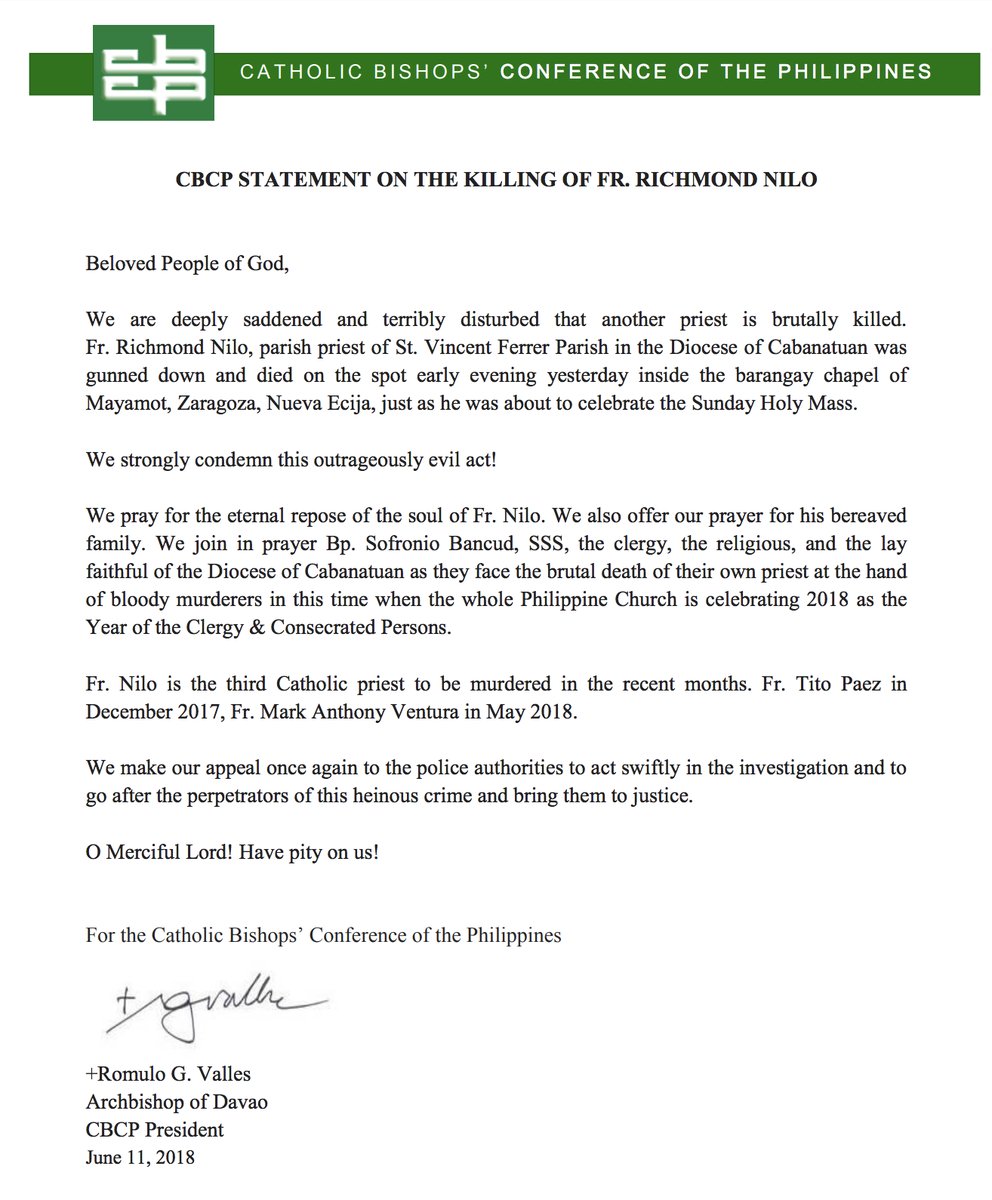
A Statement at the Conclusion of the Paris Conference on Climate Change
Before the Paris Conference on Climate Change, the CBCP issued a statement, echoing Pope Francis’ impassioned appeal for all sons and daughters of the Church to unite in common cause in support of the healing of our grievously wounded planet.
The conference has just been concluded. We are happy that our country was competently represented not only by men and women in government but also by zealous and well-informed academics and representatives of cause-oriented groups. It is our understanding that at the CBCP that the Philippine delegation was called upon the lead the discussions of States rendered vulnerable by climate change.
As always in the past, we, your bishops, address ourselves to the moral dimensions of the matter on hand. After each day of creation, God saw his handiwork to be good. But we have defaced our world. The fact that the Pope Francis, on several occasions in the past, but most significantly recently through Laudato Si, an encyclical of enormous import and significance, has weighed in heavily in favor of decisive action on the environment including climate change makes the position of the so-called “deniers” a highly questionable, if not irresponsible and ethically unacceptable position, particularly if their denial of the significance of the threat of climate change is politically or ideologically motivated, rather than the result of heeding the virtually undeniable data on hand!
Second, it has become clear that care for the environment and resolute measures towards healing our planet are not only worthwhile engagements, if we care to, but are in fact moral imperatives, demands made both on individuals as well as on communities and nations. Any act that results in the further depredation of the precarious balance of eco-system, or that leaves a threatening carbon footprint, or that results in the diminution of biodiversity is not only deplorable. It is morally objectionable and constitutes an offense against social justice.
Third, the Paris Conference highlighted the tension between the legitimate demands of developing countries (and underdeveloped ones) and the requirements that the Paris Conference has endeavored to exact from all state-parties in respect to such matters as a cap on increases in global temperature in the coming years and decades.
For one thing, poor and struggling economies apparently pin their hopes of amelioration in the continued use of fossil fuel and other non-renewable sources of energy, finding alternatives way beyond their reach. But if we take the decisive steps to keep us from falling off the precipice only when all countries shall have reached an acceptable state of development, the opportunity to make a difference shall then have passed. In fact, many have expressed the view that we have already forfeited our chance at reversing the march to cataclysm.
This only underscores the need for that kind of global and regional solidarity that will not leave poor and underdeveloped economies to their own resources, while prosperous nations wallow in luxury, enjoying the benefits of prosperity. While there is good reason to maintain that the welfare of prosperous states demands that they heed the needs of underdeveloped and developing states, it is more in keeping with the Christian message of mercy that it is an obligation of our common humanity that the prosperity of all be reckoned by the prosperity of the least in the world!
One more point needs to be stressed: the right to a healthful ecology – including the right to be protected against the adverse effects of global warning – is a human right and must both be advocated and defended with the determination by which we stand by other human rights. The fact cannot be overstressed: It is often the case that the poor pay the price of the prosperity of the rich!
The Church in the Philippines will do its share. We call on our Basic Ecclesial Communities to make local threats to the eco-system and contributory causative factors to global warming and climate change a matter of community discernment, and the action in response to these threats, a matter of community resolve. The church will also oppose the opening of new coal-fired power plants and advocates the denial of government permits and licenses to coal mines.
We urge scientists and technologists in our colleges, universities and schools – and we direct those in Catholic institutions – to make the increased use of alternative energy sources a priority of research and development.
We call on our parishes, through our bishops and priests, to desist from those practices that aggravate an already-precarious situation, such as the wasteful maintenance of so many, unnecessary vehicles, the irresponsible use of electric power, the wastage of water, even otherwise laudable livelihood efforts that nevertheless pose a threat to the environment, such as the wasteful and destructive use of forest products.
We urge government and scientists to keep us in the CBCP constantly informed so that together we may find ways of doing what we can to transform the lofty aspirations of the Paris Conference into norms of everyday living for each Filipino.
From the Catholic Bishops’ Conference of the Philippines, December 17, 2015
+SOCRATES B. VILLEGAS
Archbishop of Lingayen-Dagupan
President, CBCP











